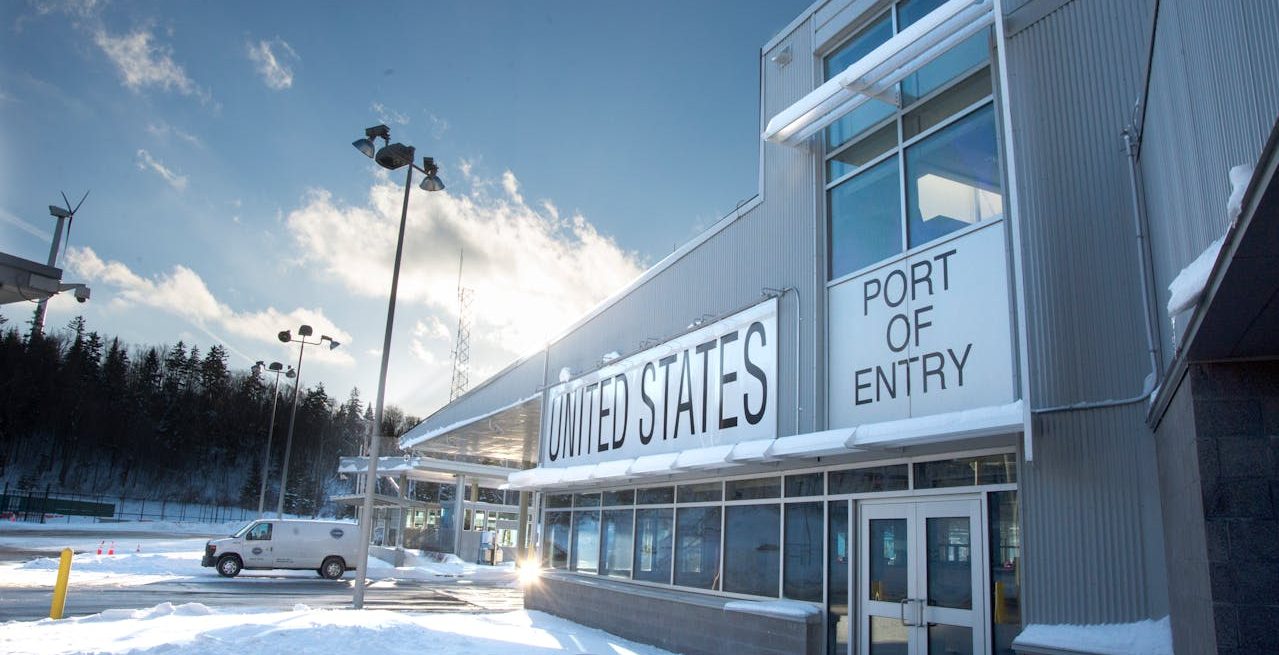Are You Prepared for an ICE Raid? What Every Restaurant Needs to Know
4 Min Read By Carrie Luxem
Immigration and Customs Enforcement (ICE) has intensified its focus on industries that employ large numbers of undocumented workers, and restaurants remain a top target.
The question isn’t if ICE will show up—it’s when. And when that moment comes, will your team know what to do?
Recent enforcement actions highlight the severe consequences businesses face for non-compliance. A lack of preparation can lead to hefty fines, operational disruptions, and even criminal charges. Let’s explore past ICE enforcements against restaurants and, most importantly, what you can do now to protect your business.
When It Goes Wrong: Real-World ICE Enforcement Cases
Case #1: Chuy’s Mesquite Broiler – A Costly Mistake
Chuy’s Mesquite Broiler, a restaurant chain in Arizona and California, came onto ICE’s radar in 2011 for knowingly hiring undocumented workers. The company’s owners and accountant were indicted on federal immigration and tax charges after it was discovered that over 40 undocumented workers were employed without proper paperwork.
The violations didn’t stop there: The restaurant also paid workers off the books to avoid payroll taxes, resulting in an estimated $400,000 in unpaid FICA taxes. The owners received significant prison time and fines for their role in the scheme.
Lesson: Employers who knowingly hire undocumented workers and attempt to manipulate payroll records not only risk ICE enforcement but also serious criminal liability.
Case #2: Ocean Seafood Depot – Unwarranted Chaos
In January 2025, ICE conducted a high-profile raid on Ocean Seafood Depot in Newark, New Jersey, where multiple employees were detained, including a U.S. military veteran whose documentation was questioned.
The mayor of Newark condemned the raid, stating that ICE officers entered without a proper warrant, leading to violations of constitutional rights. This case raised concerns about due process and legal enforcement procedures, with workers and legal advocates challenging the legitimacy of ICE’s actions.
Lesson: Even documented employees can be affected by ICE enforcement. Understanding your rights as an employer and ensuring ICE follows legal procedures is critical to protecting your business and employees.
Case #3: Chicago’s Restaurant Industry – Bracing for Impact
In early 2025, ICE announced a series of planned raids in Chicago, targeting undocumented restaurant workers with prior deportation orders. Although many raids have not yet occurred, the fear and uncertainty alone has led to:
- A drop in business and foot traffic, as customers and employees fear enforcement actions.
- Restaurants struggling to operate because workers, afraid of being detained, have quit or failed to show up for shifts.
- Community organizations stepping in to educate workers and managers on their rights.
Lesson: Just the threat of ICE enforcement can have a devastating impact on restaurants. Having a clear action plan can help reduce panic and ensure operations continue smoothly.
What ICE Is Looking for in Restaurants
ICE typically conducts one of three types of enforcement actions:
1. I-9 Audits (Notice of Inspection – NOI)
- Employers receive a formal notice requesting I-9 forms and employment records.
- They must comply within three business days or risk fines.
- Fines range from $252 to $2,507 per violation—even for simple paperwork errors.
2. Worksite Raids
- ICE agents arrive unannounced to investigate unauthorized workers.
- Employees may be questioned or detained.
- Employers who knowingly hire undocumented workers can face criminal charges.
3. Subpoenas and Investigations
- ICE may issue subpoenas for employment records as part of an investigation.
- A subpoena does not grant ICE permission to enter non-public areas of a business.
How to Protect Your Restaurant Now
The best defense is a proactive approach. Here’s what every restaurant should do:
1. Conduct Regular I-9 Audits
✔ Every employee must have a properly completed Form I-9 on file.
✔ Conduct internal I-9 audits at least once a year to catch and correct errors.
✔ Do NOT backdate or falsify information—this can lead to criminal charges.
✔ Maintain records correctly: Keep I-9 forms for at least three years from the date of hire or one year after termination, whichever is later.
2. Train Managers and Employees
✔ Managers should know ICE procedures and how to respond.
✔ Employees should understand their rights and responsibilities during an ICE visit.
✔ Designate an ICE Response Team (HR/legal) to handle interactions.
✔ Hold regular training so staff knows what to do if ICE arrives.
3. Know the Difference Between a Notice and a Warrant
✔ A Notice of Inspection (NOI) means you have three business days to respond. Contact legal counsel immediately.
✔ A subpoena requires records but does not allow ICE to enter non-public areas.
✔ A judicial search warrant (signed by a judge) allows access only to specified areas. Verify its legitimacy before complying.
4. Have an Emergency Response Plan
✔ If ICE arrives, stay calm—panic leads to mistakes.
✔ Before handing over records, request documentation to verify the legality of ICE’s inquiry.
✔ Do not obstruct ICE officers, but do not offer more information than legally required.
✔ Instruct employees to remain silent and refer all questions to legal counsel.
What Happens If You’re Not Prepared?
Failing to comply with I-9 and immigration laws can result in:
- Fines and penalties ranging from thousands to millions of dollars
- Operational disruptions from the loss of key employees and damaged team morale
- Legal consequences up to and including criminal charges
- Reputational damage as customers and employees lose trust in your business practices
Final Thoughts: Compliance Is Non-Negotiable
With ICE intensifying its scrutiny of the restaurant industry, compliance with I-9 regulations and employment verification laws is more critical than ever. But preparation shouldn’t be driven by fear—it should come from the ongoing desire to safeguard your business, your employees, and your future.
By preparing now, you can stay ahead of enforcement actions, stay compliant, and stay in business.
Not sure where to start? Restaurant HR & Leadership Academy helps restaurant leaders simplify compliance, conduct audits with confidence, and develop strong managers. As a thank you for being a Modern Restaurant Management reader, we’re offering you full, unlimited access for one month—completely free.
To claim your exclusive access GO HERE.


